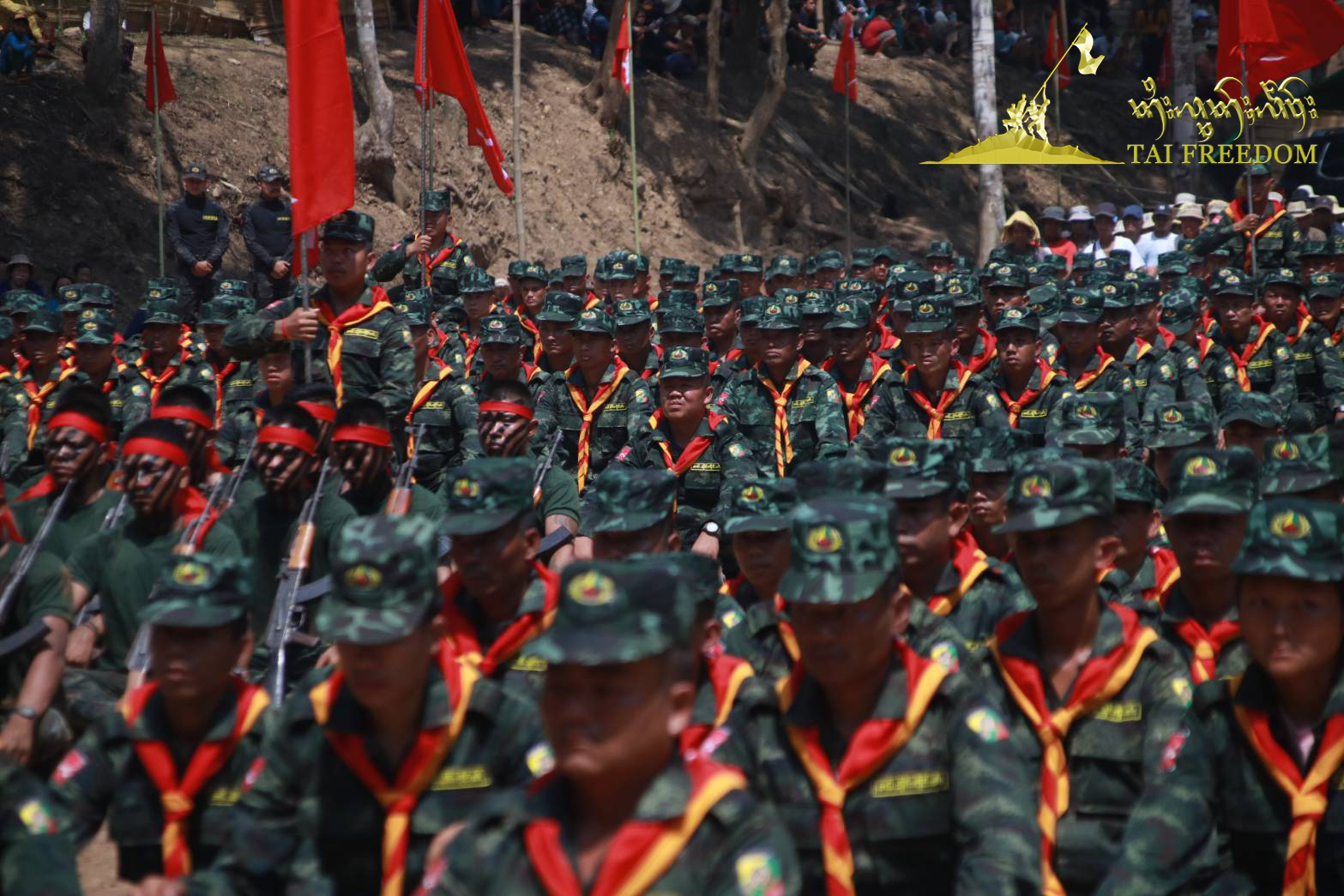CNI News
30 July 2024
The Restoration Council of Shan State (RCSS/SSA) stated that it would protect the stability of southern Shan State and the lives and properties of the public, working hand in hand with the public.
Because the Shan State people were suffering loss of their homes, properties and lives as well as injuries, displacing, hardships of children, women, older people due to battles in northern Shan State, it was sorry for the people, said in the announcement of the second quarter meeting of the RCSS held on 29th July.
According to the manpower of the revolutionary forces in northern Shan State, the revolutionary forces could enter southern Shan State, but they might have no military objective in southern Shan State, Col-Khun Okkar, patron of the Pa-O National Liberation Organization (PNLO), told CNI News.
" According to the manpower of the revolutionary forces, they might enter southern Shan State. Kokang and Palaung groups that are fighting against the Tatmadaw as well as Kokang, Wa, and the SSPP groups from northern Shan State - we don't know what their long-term strategy here in southern Shan State is. But, the SSPP forces come to Mongpun and Loilem every so often. They possibly could enter southern Shan State. But they don't seem to have a great military objective. The Wa group pays more attention to the east side of the Salween River. So, I think, places around Hopong and Taunggyi are non-combat zones at the moment." he said.
Some townships in southern Shan State are stable as non-combat zones at present. However, some revolutionary forces from the Karenni region come to southern Shan State and fight against the Tatmadaw, Col-Khun Okkar added.

While seeing the RCSS force
In the eastern and middle parts that can be said combat-zones, there are the Myanmar Tatmadaw, the RCSS, the Pa-O National Organization (PNO/PNA) and the Pa-O Militia of the Kaungkhe region.
The RCSS doesn't get on well with the SSPP. But the SSPP is an ally of the rest groups including the PNO/PNA.
Even if the SSPP came down to southern Shan State, they could use the channel on the east side of the Salween River.
“Southern part is safe at present except for some Karenni elements who come and fight against the Tatmadaw and its allies. Taking advantage of this situation, the RCSS said it would protect the stability of southern Shan State." he said.
If the RCSS closely cooperate with both the Myanmar Tatmadaw and the PNO/PNA, southern Shan State could be stable, he added. Although CNI News tried to contact information officers of the RCSS by phone about it, it has not been able to get in touch with them.
During more than three years after the Tatmadaw took power, due to the outbreak of fighting all over the country, the economic decline, the increase in human rights violations, and the weak law enforcement, the people are facing so many social problems and difficulties, stated the RCSS.
Organizations concerned should meet and discuss to cease fire and to resolve through dialogue for the establishment of a federal democratic union, urged the RCSS.




